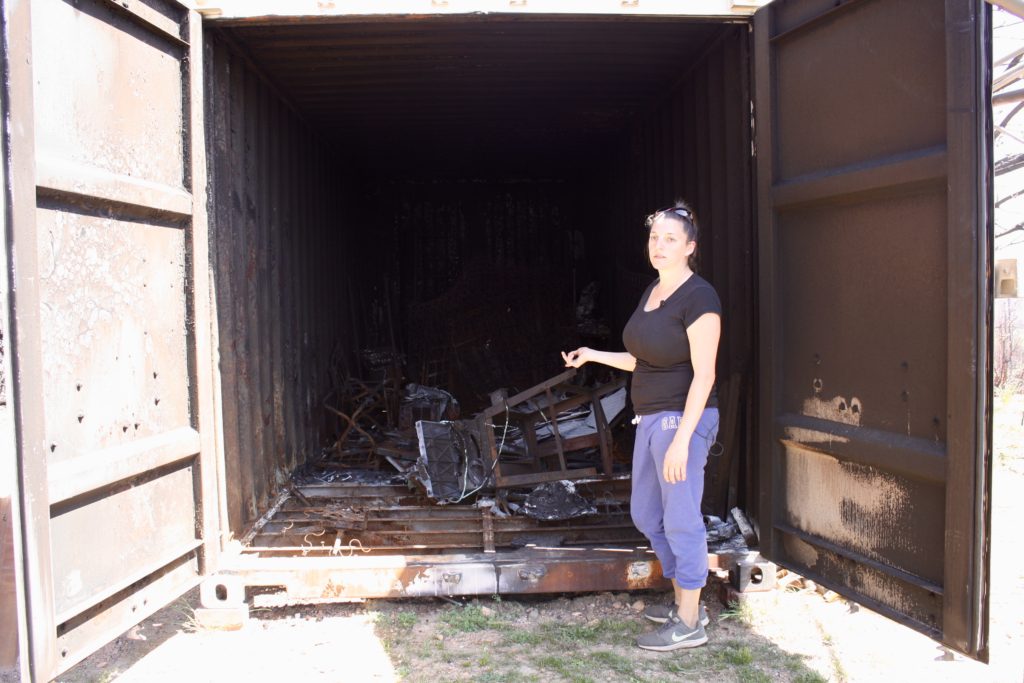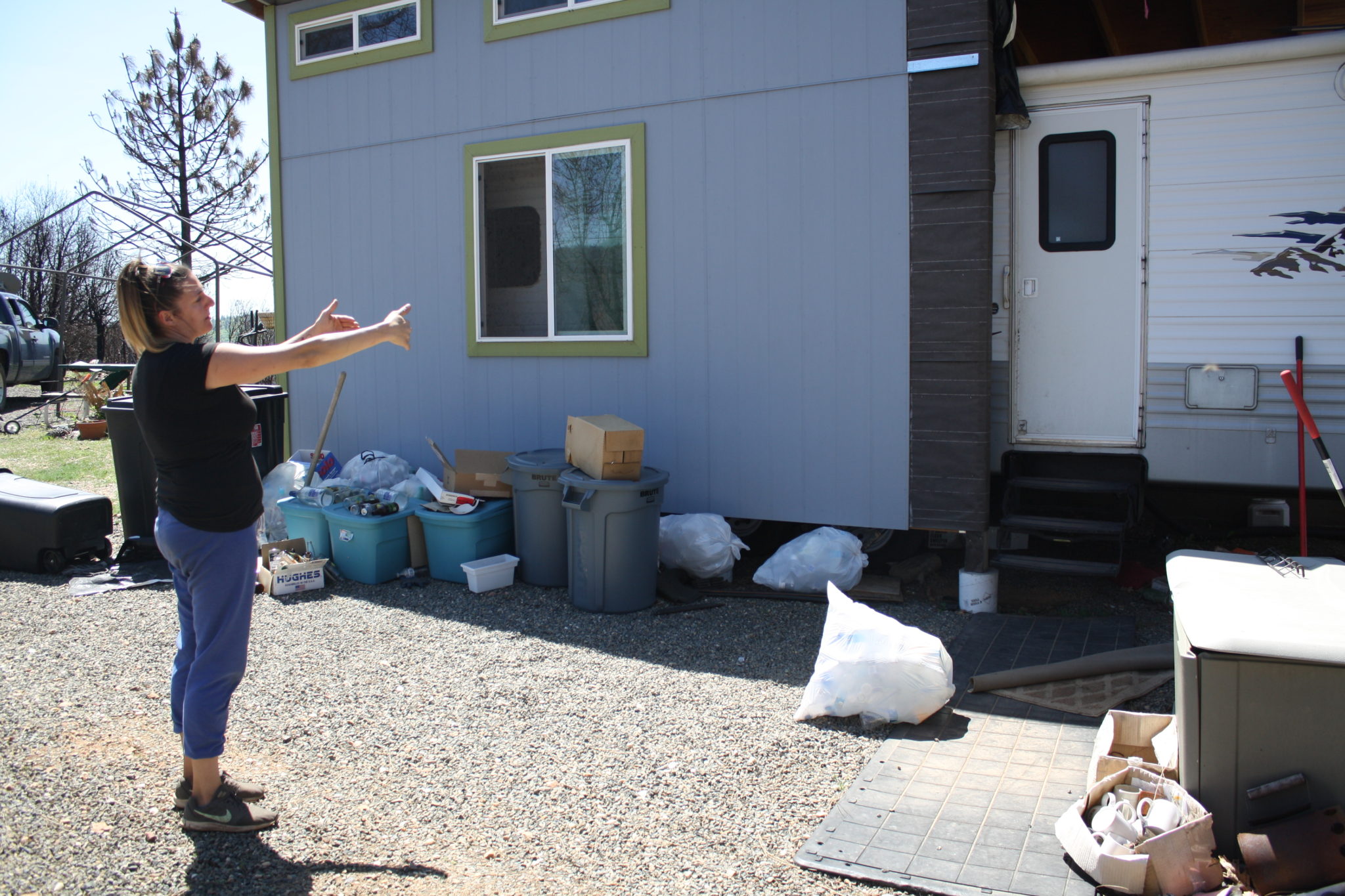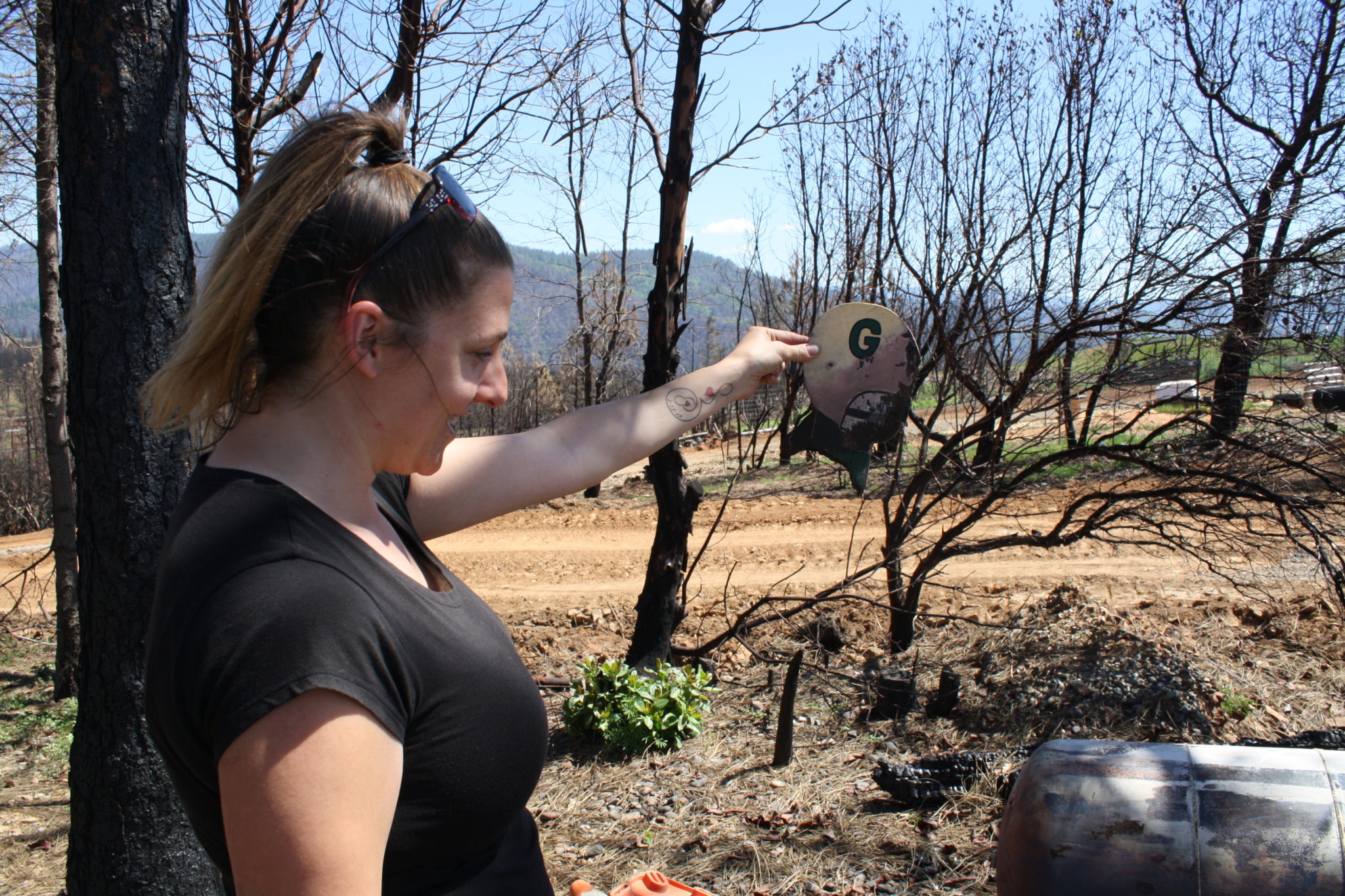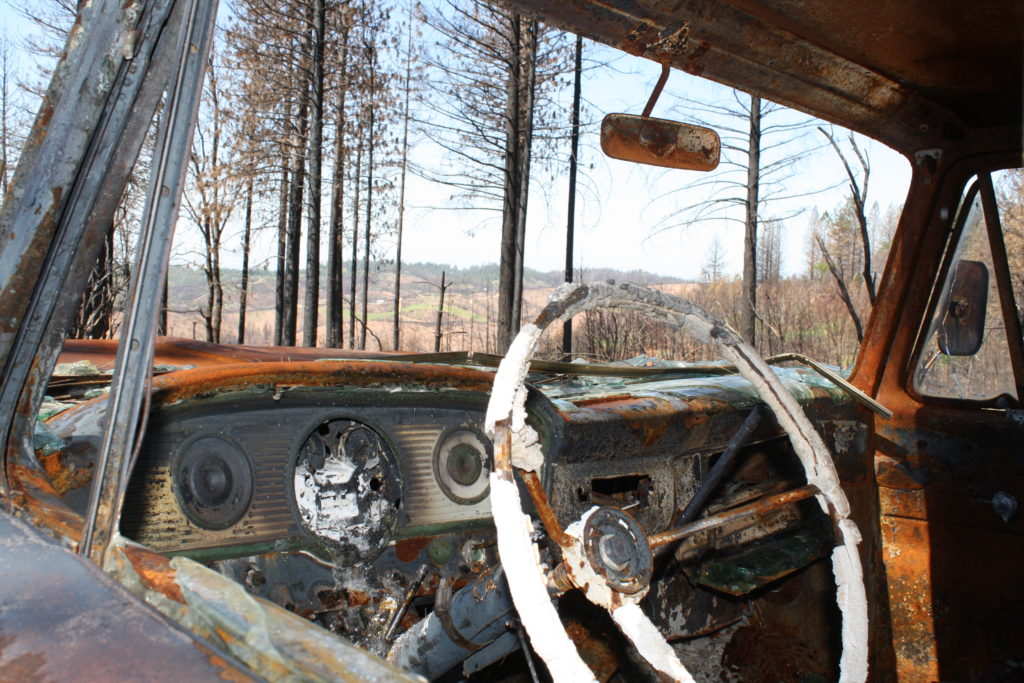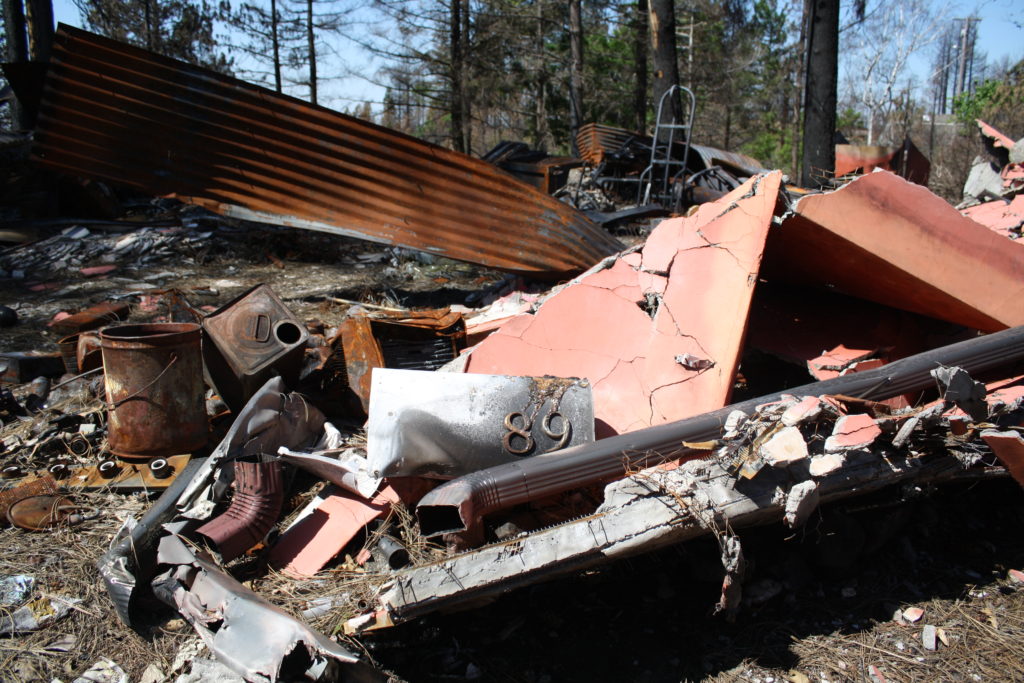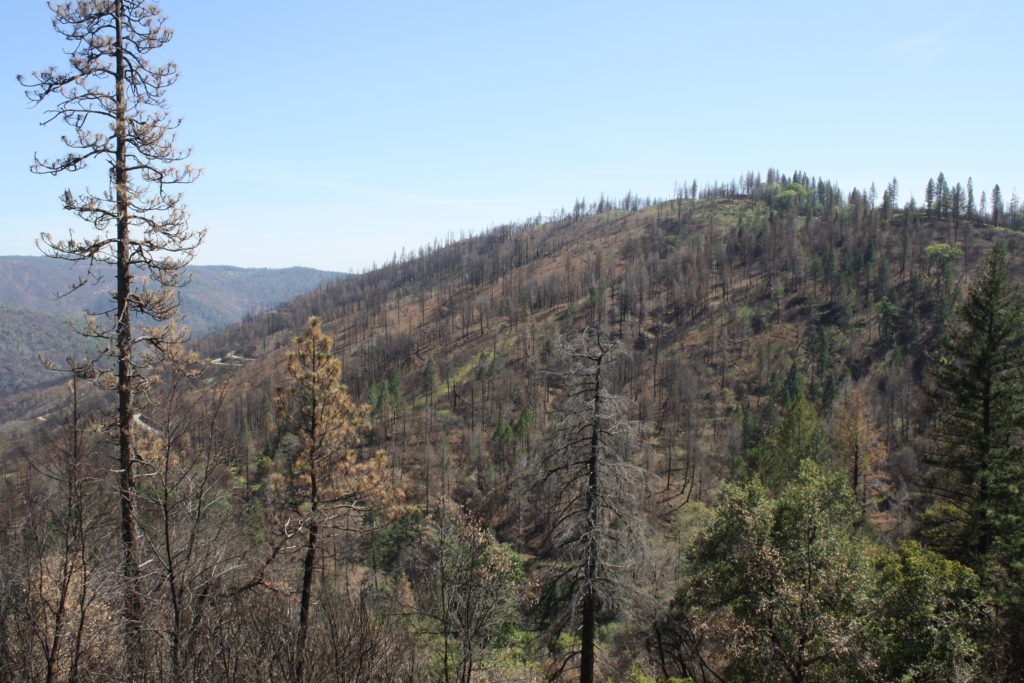“Do you want a fatboy?!” Kim Dady yelled to her husband Chris for the second time, as she climbed into their trailer to grab some money to buy lunch.
Chris was busy working hard on their property, situated on a tall hill overlooking a ravine in Concow, California. Concow is an unincorporated community situated in the Sierra Nevada foothills in Butte County. The community is approximately a 25 mile drive from Paradise, California, where the Camp Fire burned for 17 days during November 2018.
Kim and Chris grew up in the lakeside town of Port Washington, Wisconsin. But, after taking two trips to visit friends, they fell in love with the beauty of Northern California and the cost of living. They landed in Concow about four years ago, where they live with their three dogs and two goats.
“It’s so dope,” Kim exclaimed. “Even burnt there’s no way I could move away.”
She slid in to a black, stick-shift Subaru hatchback, and traversed down the steep landscape of Wind Ridge Drive to get burgers from the only local restaurant, Scooter’s Cafe, located on California State Route 70 and Deadwood Road. Ironically, thousands of blackened trees lined the way down Concow Road, the only way in and out of town.
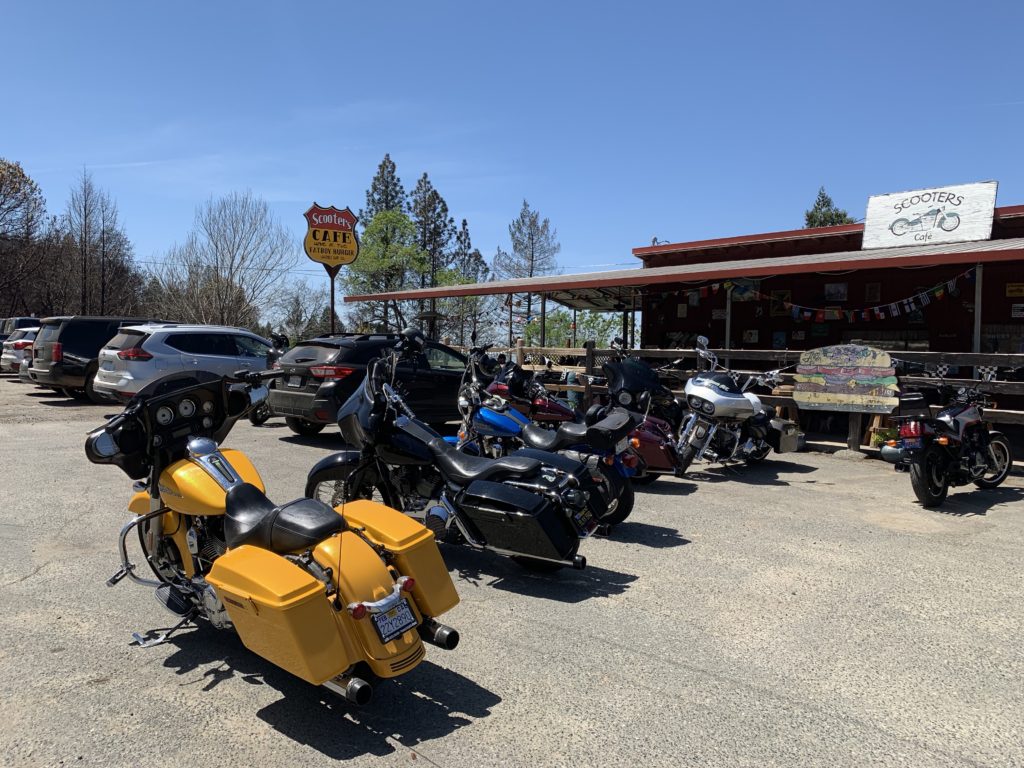
The Camp Fire was reported at 6:33 a.m. on November 8, 2018. That morning, Kim looked out a window and could see the blaze burning toward their home. Suddenly, the wind shifted. While Kim and Chris’ trailer and partially constructed tiny home were spared, their storage container went up in flames. Kim thought their belongings would be safe, but a wood floor in the storage container led to the destruction of their most prized possessions. She stays optimistic, as material things can be replaced but people cannot.
Kim used to work at Kalico Kitchen of Paradise, which was taken off the map by the Camp Fire. According to the restaurant Facebook page, the small town diner was a favorite amongst locals, earning a 4.5 out of 5 stars. After the fire, a lot of her customers moved away.
“It’s forever affected everybody,” Kim said. “I’ve lost a lot of friends. A lot. It’s sad.”
Through it all, some members of the community have stepped up to help and provide for others. Kim stood outside the Pines Yankee Hill Hardware Store, which has become a hub for Concow residents. She greeted a man named Mike in the parking lot, who climbed into a white Ford F150 adorned with a sticker saying, “Suck it Up.”
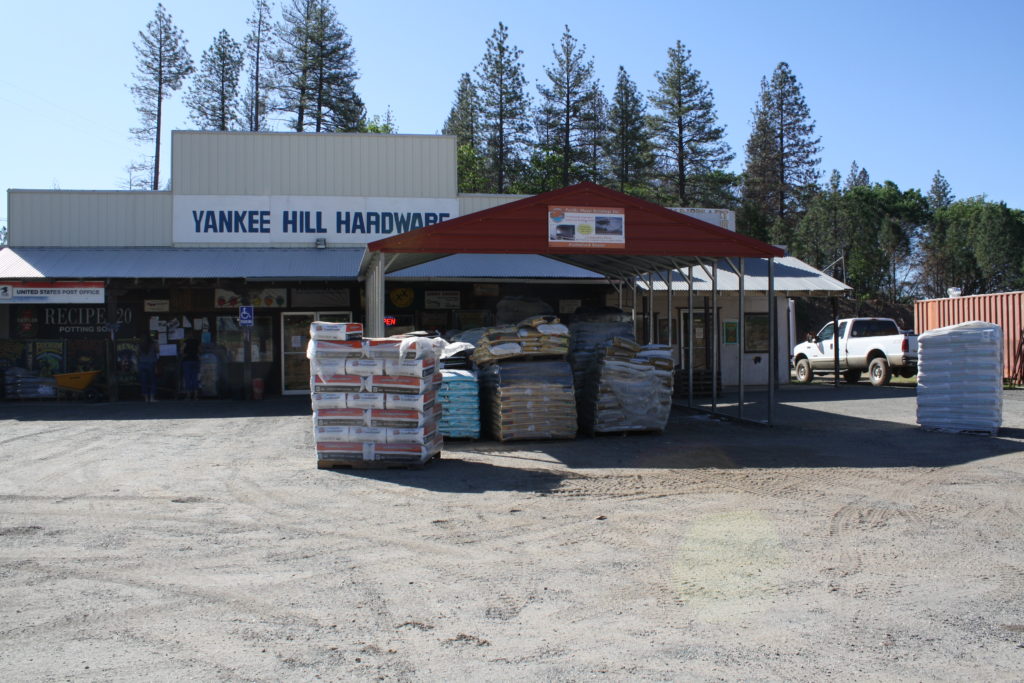
Next to the main store sits a brand new building, a distribution center, which was swiftly built after the fire. A pair, Nicole Newman and David Desmond, work together to support the people of Concow by providing food, water, clothes, toys, and much more. They see about 50 to 60 people each day. It is a situation in which the agents for recovery are also in recovery themselves. Nicole and the rest of her family are now living down the road in a trailer behind Canyon Lanes Market.
While many have noticed a sort of bonding through the obliteration of their community, many more have found the situation difficult to cope with. Seven people in Concow perished in the Camp Fire. Families have moved away, and couples have grown apart.
“Chris and I go see a therapist and she said ‘you know when things like this happen it either brings you together or breaks you up’ and I know a lot of people that have split up. Like a lot. It affects your relationships with people,” Kim explained.
The nation’s attention and most news coverage blatantly focused on the town of Paradise after the fire, rightfully so, as the name lends itself to enticing headlines. But the people of Concow feel that their struggle has been overlooked, ignored even.
As Kim drove through the devastation, which is still being cleaned up, she pointed out dozens of white trailers sprinkled in the trees. Earlier this year, the Federal Emergency Management Agency (FEMA) decided that all fire debris must be removed before residents can re-occupy their land, and if the ordinance is violated, the area could lose $1.7 billion in relief funding. Concow residents test the boundary, though, because no one is looking at them.
“It’s hard to hear it called the Paradise Fire,” Kim said. “Because it started in my backyard.”
